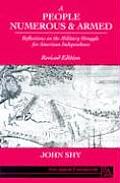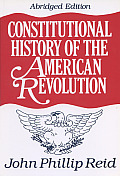John Shy and John Phillip Reid
Two noted historians of the American Revolution died in their nineties within a couple of days in early April.
When Shy retired, the University of Michigan stated:
He has led the way in emancipating military history from its traditionally narrow focus upon strategy and tactics, making it instead an essential component of any full understanding of humanity’s past. Professor Shy’s first work, Toward Lexington: The Role of the British Army in the Coming of the Revolution, published in 1956, was instantly recognized as a seminal contribution, and received the John H. Dunning Prize from the American Historical Association. Since that time, he has published extensively. A People Numerous and Armed: Reflections on the Military Struggle for American Independence, published in 1976 and in a revised edition in 1990, is widely praised because of its perceptivity and breadth of vision.Later Shy edited Winding Down: The Revolutionary War Letters of Lieutenant Benjamin Gilbert of Massachusetts, 1780-1783.
I had Toward Lexington in mind as I wrote The Road to Concord. The two books are very different, but they both look not at the war but at how British soldiers and British colonists came to be at war.
John Phillip Reid was a scholar of early American constitutional and legal history who taught at the N.Y.U. Law School. His major work was The Constitutional History of the American Revolution, first a four-volume study and then a one-volume abridgment. Other books focused on the legalities of New Hampshire and the old Northwest.
At Law & Liberty, Aaron N. Coleman wrote of Reid:
His work on the constitutional dimensions of the Revolution challenged both the progressive interpretation, which viewed the conflict through the lens of socio-economic conflict, and the ideological school, which connected the American arguments to the republican intellectual tradition. Both schools, he believed, failed to grasp the essence of the era’s thinking. The American Revolution, he concluded, was concerned predominantly with the nature of the British constitution. . . .
One of Reid’s most persistent criticisms centered on historians’ presumption that law and constitution are the commands of the sovereign. Far too often, historians assume that what Parliament stated was the law, thereby concluding that the only way to understand the negative American response to measures such as the Stamp Act and the Coercive Acts must be to look beyond the law to political ideology. In the eighteenth century, however, “constitutional,” “legal,” and “political” lacked the precision they now carry. In that era, “constitutional” still retained its older definition rooted in custom, “to proceed in conformity to law, in conformity to custom, and in conformity to the current constitutional conventions.” At the same time, “legality” meant acting within the confines of the customary constitution, while the “political” was “a matter of choice rather than precedent” designed for immediacy rather than durability. Hence, the British constitution of the eighteenth century remained one in which custom, traditions, and values restrained power.



No comments:
Post a Comment